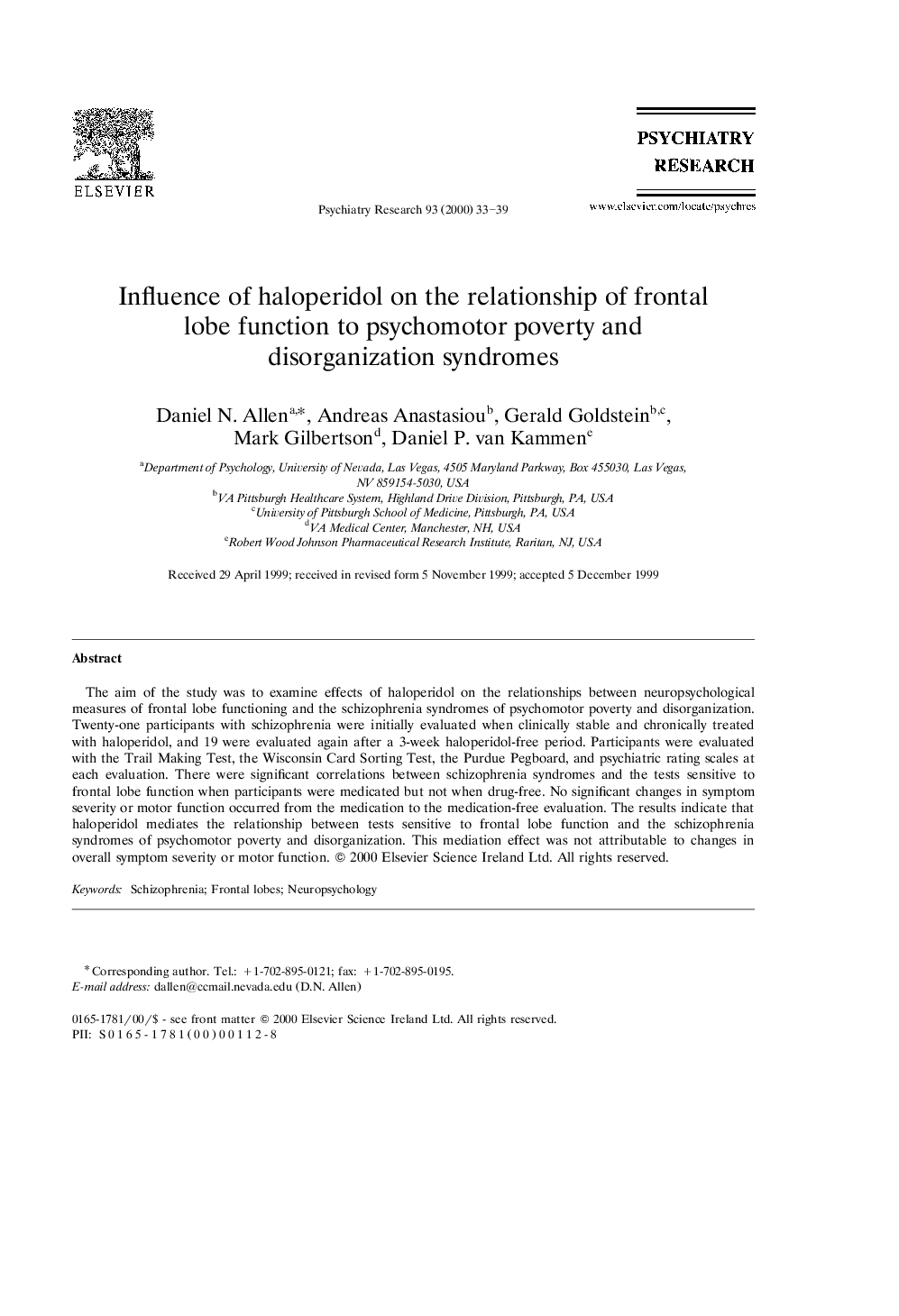ترجمه فارسی عنوان مقاله
تأثیر هالوپریدول بر رابطه عملکرد لوب فرونتال با فقر روانشناختی و سندرم تخریب پذیری
عنوان انگلیسی
Influence of haloperidol on the relationship of frontal lobe function to psychomotor poverty and disorganization syndromes
| کد مقاله | سال انتشار | تعداد صفحات مقاله انگلیسی |
|---|---|---|
| 36569 | 2000 | 7 صفحه PDF |
منبع

Publisher : Elsevier - Science Direct (الزویر - ساینس دایرکت)
Journal : Psychiatry Research, Volume 93, Issue 1, 14 February 2000, Pages 33–39
ترجمه کلمات کلیدی
جنون جوانی، لوب های جلو، عصب شناسی
کلمات کلیدی انگلیسی
Schizophrenia; Frontal lobes; Neuropsychology

